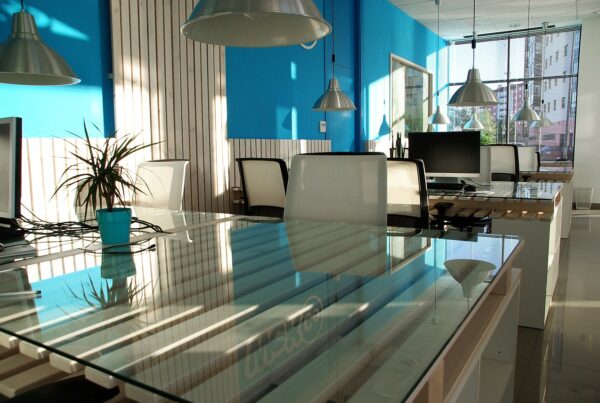The world has gone under a drastic revolution in the past few months. And this shift has been so quick that we all had no choice, but to accept to adapt.
Well, the fact is that working from home is currently trending in some industries, and this comes along with the rapid technological advances, which allows people to communicate with their teams and supervisors beyond geographical boundaries. As a result, some remote opportunities might knock your door from time to time. And we bet that you’re wondering if this working style has been made for you or not.
While many love the fact of working from home, this might come as a mixed blessing. To help you with the same, let’s compare working from home vs working from an office in this post.
1. Dress code
Working from Office: According to a study, any company that enforces a dress code is perceived negatively by 61% of people looking for a new job. Still, we dress to impress; but resent being told what to wear.
Typically, when you work in a modern business office, you shouldn’t come in ripped jeans and loose t-shirts. Usually, an office space sets a standard (a protocol) and you are required to wear formal clothes in accordance.
Working from Home: Now, let’s see the other part of the picture. Working from home simply might mean sitting at home in your sweats, on the rug, or in your pajamas all day long. In a nutshell, whatever makes you comfortable.
2. Commuting
Working from Office: Several kinds of research have found a connection between the daily time you spend commuting and your job satisfaction score. Ultimately, 20 extra minutes of daily commuting has the same negative effect on job satisfaction as getting a 19% pay cut. And what’s the average commute in your city? In a modern city like Delhi, an average person spends about 1 hour 32 minutes commuting on a daily basis, but it might more in other parts of the world.
Working from Home: On the contrary, there’s no commuting back and forth to work, so there’s no problem. You’re not wasting your time in traffic jams and your job satisfaction isn’t affected at all. The extra time saved here can be used somewhere else, you can have more me-time, for instance, or just spend it with your friends and family.
That’s one of the strongest benefits of working from home.

3. Accounting Others
Working from Office: When you work in an office, taking care of children or animals becomes a little more difficult. Here’s a problem which many professionals face: they try to fit at least two roles into your daily schedule: being a business person during the day and a parent after hours. Not to forget, the poor animals that wait for you all day long before they can go out or get their food.
Overall, there isn’t much freedom regarding these decisions, and you must settle into them.
Working from Home: No matter whether it happens from time to time, when you have to babysit your nephews, or when you are a mother/father and you have babies to take care of. Working from home is especially beneficial when you have to take care of others.
Furthermore, working from home is just great when you have animals. A dog will always cherish your presence during the day and help you introduce some healthy breaks into your workflow.
4. Flexibility
Working from Office: Office work demands alignment. You need to fit into those standard 9 working hours between 9 to 6. And you’re expected to deliver your highest alertness at that time.
Despite the fact that you might not be effective at all then. This simply means that you have to struggle against your character, with no choice or freedom to set your working schedule.
Working from Home: It’s a little different. You now have the flexibility to wake up when you choose and tailor your day to your needs. If your company is new to remote work, chances are they still want all employees working the traditional work hours of 9-to-5.
With remote work, you can now wake up (a little) later, pick a time for lunch, and close your laptop when you want — for some, that’s 4 pm, others it could be 7 pm. The point is that you can deal with your tasks much faster when you’re most alert and energetic, and that’s a huge benefit.
As more companies adopt a remote-first policy, working hours will shift to fit the employee’s schedule. This shift means more flexibility on when you start and end your day and where you work from. You should be able to work from anywhere that has a solid internet connection!
5. Working Environment
Working from Office: When working at the office, you don’t have a choice in your work environment or office setting. If your company holds a lot of meetings, you might spend a lot of time inside meetings rooms. You might even have difficulties finding available meeting rooms which wastes even more of your time (unless your company uses a meeting room booking system to manage room booking). You might have a noisy coworker, or sit under the air conditioner, which could impact your productivity. But still, you’ll have space where you can remove all the clutter and focus just on the tasks you have assigned, or at least, you can tell your noisy coworker to bug off.
At Empowerers Coworking City, we account for your focus with utmost priority. That’s why, we have dedicated designer spaces with isolation, that gives you, your focus space.
Working from Home: On the other hand, as a remote employee, you don’t always control your workspace.
When you are trying to focus on your home, there are sometimes unexpected difficulties that distract you and lower your efficiency.
For instance, let’s say you moved into a newly built apartment and there’s some renovation going on around, apparently, your neighbors might haven’t finished their flat’s interiors yet.
It can be awful, but you truly don’t have a choice over to just trying to be cool with it.
6. Salary
If we talk about the salary for remote workers and regular office workers, we can come to the conclusion that on average, the money is equal in either case. Or sometimes the remote worker might get even better rates because a remote worker doesn’t carry a high cost for an employer as he/she doesn’t use the office space, insurance cover isn’t required, usually no HR, no kitchen supplies consumption, or even devices like computers. So the company can spare some resource maintenance money here.
When you work from home, there are tons of financial perks. You don’t have to worry about sitting in traffic, commuting expenses, and you won’t be tempted to go out after work and spend money on happy hours and eating out.
Working from home has its own costs. In addition to broadband internet costs, employees need to think about their energy costs like electricity. They may also carry “startup” costs for telecommuting technology typically burdened by employers. Typical work-at-home expenses include desks, chairs, network routers, and monitors.
7. Monitoring
Working from Office: When working from an office, managers have a clear view of what team members are working on. They can go up and ask questions, have daily check-ins, and have whiteboarding meetings to make sure everything is on track.
Working from Home: When you work from home this is not the case anymore.
No one sees you, and no one judges you for your personality. This might be mentally healthier in the long run. As it makes your business relationship open-minded and modest. And you don’t have to mix your private life with it. Simple as that!
One drawback here comes in form of a fact that when you work from home, your supervisors can’t see that you’re working hard to perform the job and put in tremendous effort into some tasks. Here, they will simply judge you on tangible result basis only.
Above all, this social aspect depends hugely on your mindset. There are introverts who avoid meeting new people at all costs, and on the other hand there are social creatures who are always hungry to bring new people into their life, just to make reality more exciting.
Key Takeaway
Both remote and office work has some advantages and disadvantages. Depending on your individual needs in a particular period of your life you’re in, you might prefer one working style and then another.
So consider this and remember you can always test it out and go back to the office when such autonomy isn’t working for you. Good luck!
You may also like,
A Step by Step Guide to Choosing Office Space to Grow Your Business





